Filter by
SubjectRequired
LanguageRequired
The language used throughout the course, in both instruction and assessments.
Learning ProductRequired
LevelRequired
DurationRequired
SkillsRequired
SubtitlesRequired
EducatorRequired
Find the best Semiconductor course for your goals
 Status: Free Trial
Status: Free TrialArizona State University
Skills you'll gain: Statistical Process Controls, Process Control, Semiconductors, Quality Assurance, Verification And Validation, Electronics Engineering, Manufacturing Operations, Manufacturing Processes, Electronics, Process Improvement, Process Analysis, Product Testing, Reliability, Electronic Components, Electronic Systems, Computer Hardware, Computer Architecture, Hardware Architecture, Thermal Management, Scalability
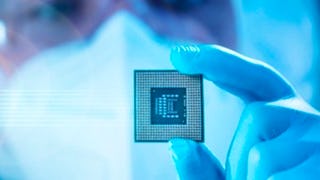 Status: Free Trial
Status: Free TrialArizona State University
Skills you'll gain: Semiconductors, Analytical Testing, Electronic Components, Engineering, Scientific, and Technical Instruments, Analytical Chemistry, Failure Analysis, Electronics, Image Analysis, Laboratory Testing, Laboratory Equipment, Production Process, Basic Electrical Systems, Test Equipment, Materials science, Electrical Engineering, Electronic Systems, Manufacturing Processes, Process Control, Electronics Engineering, Laboratory Research
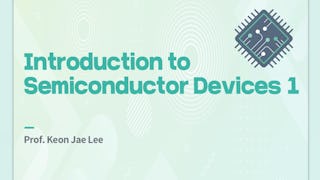 Status: Preview
Status: PreviewKorea Advanced Institute of Science and Technology(KAIST)
Skills you'll gain: Semiconductors, Electronic Components, Electronics, Electrical Engineering, Materials science, Physics
 Status: Free Trial
Status: Free TrialUniversity of Colorado Boulder
Skills you'll gain: Semiconductors, Electronic Components, Power Electronics, Electrical Engineering, Electronic Systems, Display Devices, Materials science, Electronics Engineering, Electrical and Computer Engineering, Electronics, Physics, Mathematical Modeling, Applied Mathematics
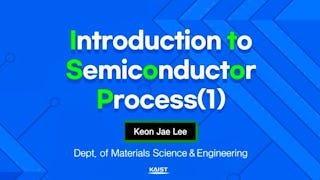 Status: Preview
Status: PreviewKorea Advanced Institute of Science and Technology(KAIST)
Skills you'll gain: Semiconductors, Process Engineering, Manufacturing Processes, Production Process, Electronics, Electronics Engineering, Materials science, Chemical Engineering
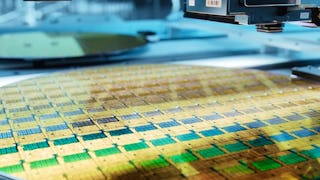 Status: Free Trial
Status: Free TrialArizona State University
Skills you'll gain: Semiconductors, Electronic Components, Materials science, Electrical Engineering, Electronics, Electronics Engineering, Estimation
What brings you to Coursera today?
 Status: Free Trial
Status: Free TrialArizona State University
Skills you'll gain: Statistical Process Controls, Process Control, Quality Assurance, Semiconductors, Verification And Validation, Manufacturing Operations, Manufacturing Processes, Process Improvement, Process Analysis, Product Testing, Test Engineering, Thermal Management, Electronics Engineering, Electronics, Reliability, Performance Testing
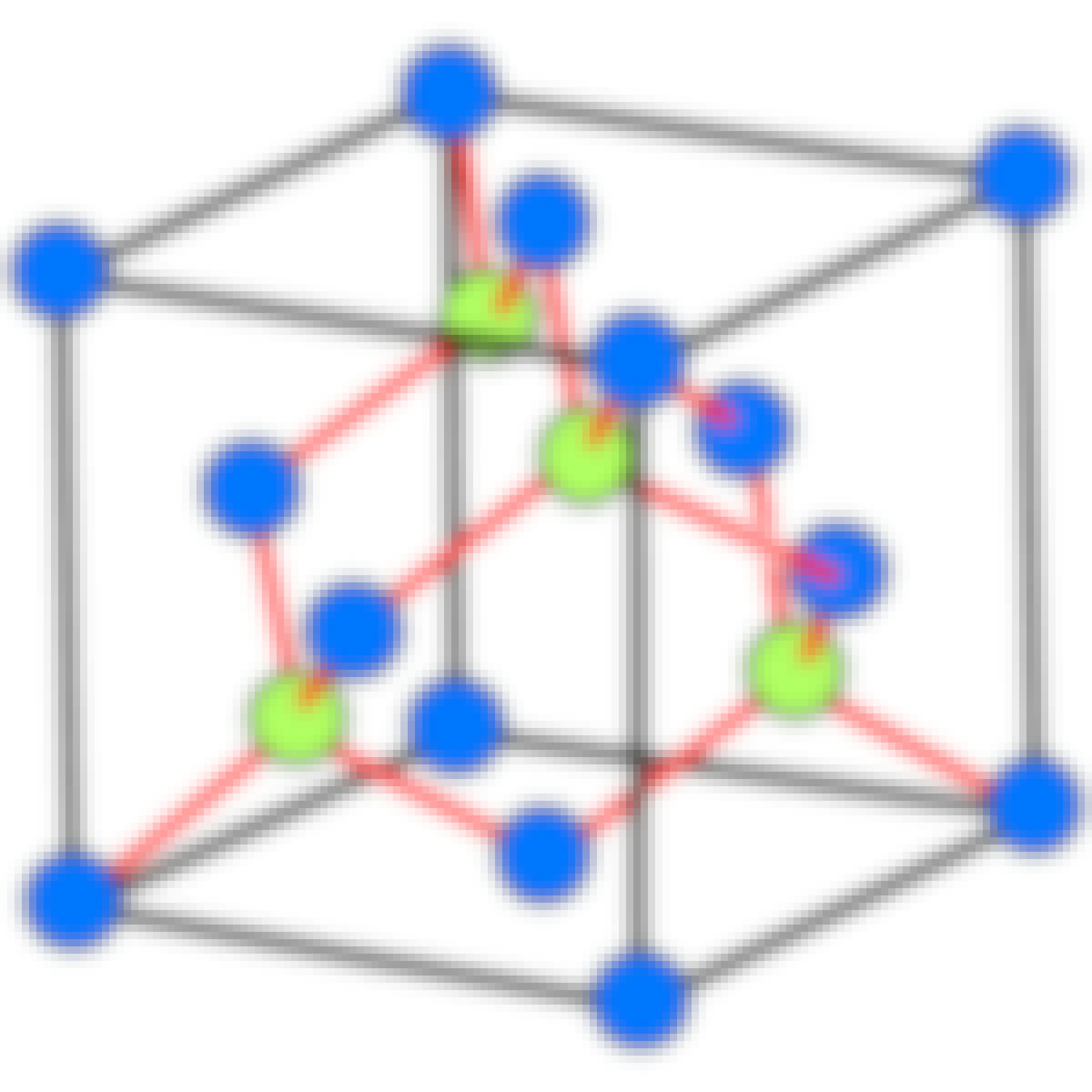 Status: Free Trial
Status: Free TrialUniversity of Colorado Boulder
Skills you'll gain: Semiconductors, Electronic Systems, Materials science, Electrical Engineering, Electronic Components, Physics, Electronics, Applied Mathematics
 Status: NewStatus: Free Trial
Status: NewStatus: Free TrialUniversity of Minnesota
Skills you'll gain: Semiconductors, Finite Element Methods, Medical Devices, Materials science, Micrometer, Electronics Engineering, Laboratory Testing, Quality Assurance, Process Control, Biomedical Engineering, Electronic Systems, Product Testing, Manufacturing Processes, Electrical Engineering, Electronic Components, Computer Architecture, Process Engineering, Laboratory Procedures, Mechanical Engineering, Emerging Technologies
 Status: Free Trial
Status: Free TrialSkills you'll gain: Field-Programmable Gate Array (FPGA), Electronics, Hardware Design, Application Specific Integrated Circuits, Electronics Engineering, Serial Peripheral Interface, Computational Logic, Electrical Engineering, Computer Architecture, Schematic Diagrams, Semiconductors, Electronic Hardware, Electronic Components, Internet Of Things, Embedded Systems, Programmable Logic Controllers, Low Voltage, Electronic Systems, Control Systems, Computer Engineering
 Status: Preview
Status: PreviewCoursera Instructor Network
Skills you'll gain: Hardware Design, Application Specific Integrated Circuits, Electronics Engineering, Engineering Design Process, Electronic Hardware, Electronics, Design, Technical Design, Semiconductors, Computer-Aided Design, Electrical and Computer Engineering, Electronic Systems, Electronic Components, Verification And Validation, Simulation and Simulation Software, Open Source Technology, Schematic Diagrams
 Status: Free Trial
Status: Free TrialArizona State University
Skills you'll gain: Materials science, Failure Analysis, Semiconductors, Manufacturing Processes, Structural Analysis, Mechanical Engineering, Chemical Engineering, Chemistry, Thermal Management, Engineering, Laboratory Testing, Physical Science, Physics, Engineering Analysis, Reliability, Engineering Calculations
Semiconductor learners also search
In summary, here are 10 of our most popular semiconductor courses
- Semiconductor Packaging: Arizona State University
- Semiconductor Characterization: Arizona State University
- Introduction to Semiconductor Devices 1: Korea Advanced Institute of Science and Technology(KAIST)
- Semiconductor Devices: University of Colorado Boulder
- Introduction to Semiconductor Process 1: Korea Advanced Institute of Science and Technology(KAIST)
- Fundamentals of Semiconductor Characterization: Arizona State University
- Semiconductor Packaging Manufacturing : Arizona State University
- Semiconductor Physics: University of Colorado Boulder
- Introduction to Semiconductor and MEMS Fabrication: University of Minnesota
- Chip based VLSI design for Industrial Applications: L&T EduTech










